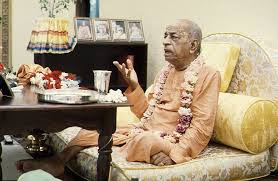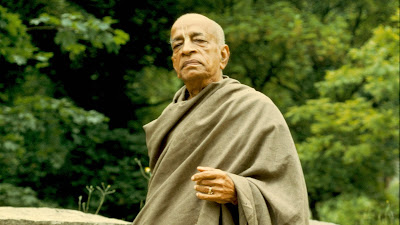God has innumerable names, Part 2

„ Now, you should understand Kṛṣṇa as God. When we speak of Kṛṣṇa... Last week I explained that if there can be any name of God... There are many thousands of names of God. Somebody says, "God has no name." Yes, God has no particular name because, as I explained, God's name is ascertained according to His activity. Just the other day I explained. God appeared as the son of Nanda Mahārāja, so He is called son of Nanda. That is another name, Nanda-nandana. Nanda-nandana means one who gives pleasure to Nanda. So everyone's son, child, gives pleasure to his parents. So Kṛṣṇa, by His activities, childhood activities, He gave pleasure to His father and mother, Yaśodā and Nanda. Therefore He is known as Yaśodā-nandana, Nanda-nandana. He was lover of Rādhārāṇī; therefore He is called Rādhā-ramaṇa. In this way, Kṛṣṇa has got different names, or God has got different names, according to His activities. But His real name is Kṛṣṇa. Kṛṣṇa means all-attractive. He attracts everyo...


.jpg)









.jpg)
.jpg)







.jpg)
.jpg)

